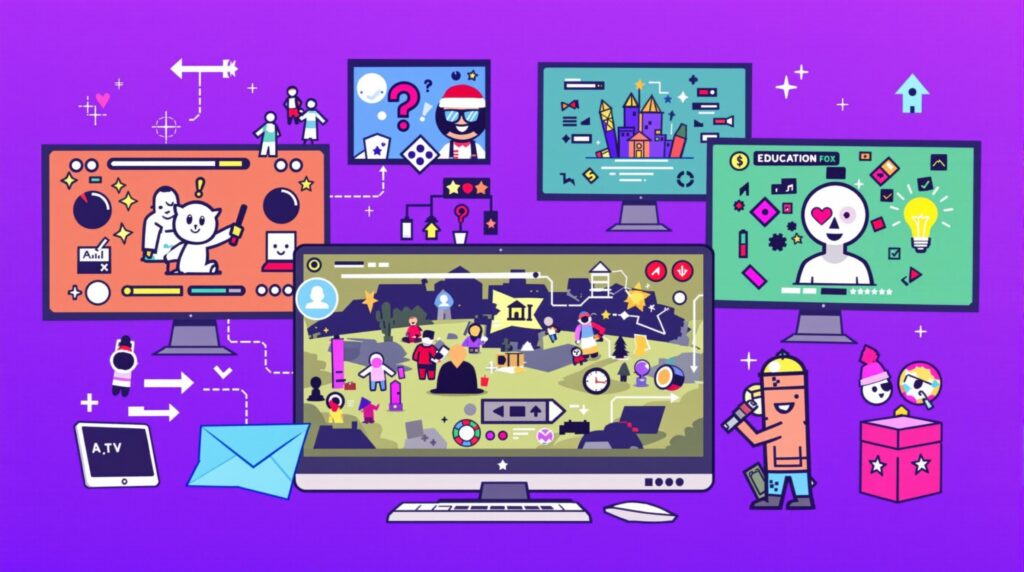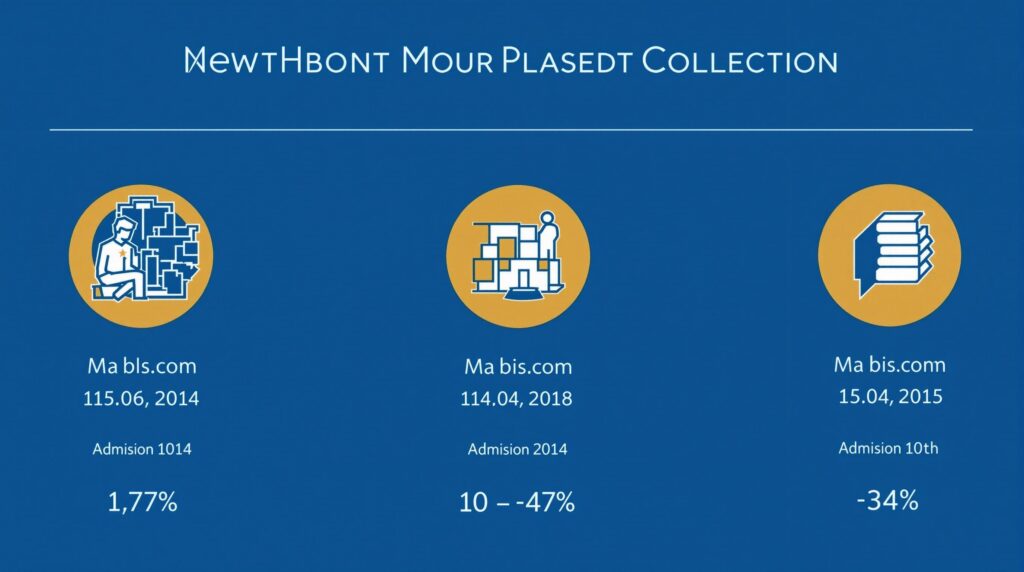Are there any grants for making video games? Yes, numerous funding sources exist specifically for game development, ranging from government programs to private industry initiatives that support educational, innovative, and socially impactful gaming projects. The growing recognition of video games as both cultural and educational tools has led to increased investment opportunities for aspiring developers seeking to launch their careers without bearing the full financial burden.
Key Takeaways:
- Over $7 million in state funding and $500,000 in social impact grants were allocated to game development in 2025
- Both government agencies and private companies like Epic offer substantial grants ranging from $5,000 to $500,000
- Educational institutions provide specialized scholarships for game development students, particularly targeting underrepresented groups
- Most grant applications require a functional prototype and clear alignment with the funder’s specific goals
- Alternative funding methods like crowdfunding platforms have helped successful games like Stardew Valley raise over $400,000
Introduction to Video Game Development Grants
The video game industry continues to expand at a remarkable pace, with the esports sector alone projected to reach $4.28 billion by 2027. This growth has sparked increased interest in supporting game developers through various funding channels. For creators facing financial barriers, educational grants offer valuable opportunities to bring innovative ideas to life.
Game development grants serve multiple purposes: they reduce financial obstacles, foster innovation, and support projects that might otherwise never see completion. In 2025 alone, we’ve seen over $7 million allocated to state-funded educational gaming initiatives and $500,000 dedicated to social impact games. These funding opportunities have become critical for indie developers and students looking to break into the industry without accumulating massive debt.

Government-Funded Grant Opportunities
Several government programs have recognized the cultural and economic value of video game development. The UK Games Fund stands as a premier example of government support, offering grants ranging from £5,000 to £30,000 for prototype development and employee costs. These grants target indie studios based in the UK that demonstrate innovation and commercial potential.
In the United States, the Texas Moving Image Industry Incentive Program provides cash grants covering 22.5% of eligible Texas spending for qualifying projects. This program requires a minimum investment within Texas and aims to boost local economic growth through game development.
The National Endowment for the Arts (NEA) has also begun supporting games with cultural, educational, or artistic value. These grants typically require applicants to demonstrate how their projects contribute to cultural enrichment or educational advancement.
Key eligibility requirements for government grants often include:
- Location-based operations (e.g., UK-based for UK Games Fund)
- Minimum spending thresholds in specific regions
- Demonstrated innovation or cultural significance
- Clear commercial potential or educational value
Private and Industry-Backed Funding Sources
Private sector grants often provide larger funding amounts than their government counterparts. Epic MegaGrants leads this category with awards ranging from $5,000 to $500,000 for projects using Unreal Engine. Their 2025 funding priorities focus on AI-driven gameplay mechanics, demonstrating the industry’s interest in pushing technological boundaries.
Unity for Humanity’s 2025 Grant program offers a total of $500,000 for projects that advance UN Sustainable Development Goals using Unity technology. This grant emphasizes social impact alongside technical innovation, making it ideal for developers interested in creating games with purpose.
The Indie Fund, backed by successful industry veterans, provides recoupable grants to promising projects. Unlike traditional grants, these funds typically require a revenue-sharing arrangement after release, but don’t need to be repaid if the project doesn’t generate sufficient revenue.
Success stories from these funding sources include Lone Pine Games receiving $100,000 to develop a socially conscious title that achieved critical acclaim. Similarly, Stardew Valley creator utilized alternative funding through Kickstarter, raising over $400,000 to complete development of what became a multimillion-dollar franchise.
Educational and STEM-Focused Gaming Grants
Libraries and educational institutions can access specialized funding for development programs. The Game On! Grant from the American Library Association offers $1,000 awards for U.S. or Canadian libraries to launch gaming programs. Applications typically open from January through March, with winners announced in June.
State-level initiatives like the North Carolina STEM Gaming Initiative have allocated over $7 million since 2021 for Plasma Games, an educational STEM video game platform. However, these programs aren’t without controversy – participation in this particular initiative declined from 29 districts in 2024 to 21 in 2025, raising questions about its effectiveness.
Educational grants often have specific requirements tied to measurable outcomes:
- Demonstrated educational value aligned with curriculum standards
- Assessment mechanisms to measure learning impact
- Sustainability plans for ongoing program maintenance
- Clear target demographics within educational settings
Scholarships for Game Development Education
For those seeking formal education in game development, numerous scholarship opportunities exist. The ESA Foundation awards approximately 400 scholarships annually for women and minority students pursuing degrees in game design or development, addressing historical imbalances in industry representation.
Harrisburg University offers full-tuition esports scholarships plus housing stipends for varsity esports players, recognizing the growing professional opportunities in competitive gaming. Meanwhile, NYU’s Game Center Scholarship provides full-tuition awards specifically for female gamers, emphasizing diversity in game narratives and development.
Eligibility typically requires:
- Enrollment in accredited game design or development programs
- Maintained minimum GPA (often 3.0 or higher)
- Portfolio submissions demonstrating relevant skills
- For some scholarships, membership in underrepresented groups
Diversity and Inclusion Funding Initiatives
The industry has recognized the need for greater diversity, leading to targeted funding opportunities. The Videogames and Esports Foundation (VEF) Grants fund disenfranchised students and organizations promoting diversity. Their 2025 priority focuses on grants for streamers from underrepresented communities, expanding representation in gaming content creation.
Unity for Humanity emphasizes projects advancing social impact goals through their grant program, prioritizing teams with diverse perspectives. These initiatives represent a growing focus on inclusive development across the industry.
The shift toward diversity funding reflects both social responsibility and market awareness – games developed by diverse teams often appeal to broader audiences, potentially increasing commercial success alongside social impact.
Application Strategies and Requirements
Most competitive grants (including Epic MegaGrants and Indie Fund) require a functional prototype or playable demo. This demonstrates both technical capability and the viability of your concept. For educational grants, clear learning objectives and assessment plans are typically necessary.
Alignment with funder goals is crucial for success. Unity prioritizes sustainable development goals, while Texas incentives emphasize local economic impact. Your application should directly address how your project advances these specific priorities.
Post-award obligations vary widely but may include:
- Regular progress reports documenting milestone achievements
- Revenue-sharing arrangements for commercially successful projects
- Participation in showcases or promotional events
- Data collection regarding educational or social impact metrics
To maximize chances of success, demonstrate innovation, commercial potential, and social impact wherever possible. Many successful applicants combine multiple funding sources to create a sustainable development plan.
Alternative Funding Methods and Resources
Beyond traditional grants, crowdfunding platforms like Kickstarter have proven effective for game developers. Stardew Valley raised over $400,000 through this approach, demonstrating the potential of community-based funding.
Resources like the Unity for Humanity: Guide for Creators provide valuable guidance for applicants. State-specific programs and university partnerships offer regional opportunities that may have less competition than national grants.
I’ve found that the most successful developers typically create a diversified funding strategy, combining:
- Traditional grants from multiple sources
- Crowdfunding campaigns with clear deliverables
- Strategic partnerships with educational institutions
- Early access or pre-order models to generate initial revenue
This layered approach reduces dependency on any single funding source and increases the likelihood of securing sufficient resources to complete development.
Sources
thecreativeblok.com – Game Development Grants to Boost Your Project in 2025
unity.com – Unity for Humanity 2025 Grant Now Open
games.ala.org – Game On! Grant
grantwritingacad.org – Game Development Grants
bpr.org – State Program Funding Educational Video Game Under Scrutiny
bold.org – Video Game Scholarships
gov.texas.gov – Texas Moving Image Industry Incentive Program



